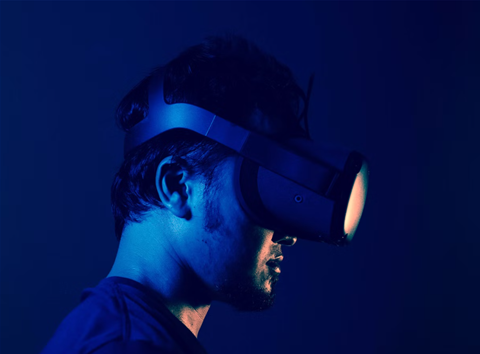We are all gamers now.
The huge $68 billion cheque Microsoft wrote last week to the shareholders of Activision Blizzard pales in comparison to the real prize the technology giant has its gaze set upon — the $21 trillion Metaverse.
That’s how much analysts such as Constellation Research in the US estimate the economy of the next generation of internet services will be worth by 2030.
Success in the Metaverse also hinges upon technologies and developments that for many organisations remain over the horizon — artificial reality, cryptocurrency, NFTs, blockchain.
Constellation Research, in an initial analysis released shortly after the deal was announced, identified what it describes as the 5 layers of the metaverse economy;
- Interfaces - Brain machine and human APIs
- Metaverses - digital experiences and worlds
- DAOs -AI-driven dynamic governance models
- Blockchain/crypto tech - trusted, private and secure value exchange
- Web 3.0 - decentralsed access and self-sovereignty.
Constellation Research's analysis noted, "Microsoft’s building materials to establish a metaverse platform has suddenly become FAR more interesting. They have the hardware and cloud aspect of the metaverse stack, and thanks to hardware innovations made on the Xbox hardware itself, have security chips and technologies to establish new security measures for the metaverse stack and network.
"Add to this the content, expertise in managing, building and engaging MMO players and influencers, the subscription network and player infrastructure to not just create a community but co-create an economy for that community online."
Speaking to Digital Nation this week, Constellation Research founder Ray Wang described the wider implications, “If you're a movie studio, or if you're a gaming platform, or if you're a sports league like the AFL you can go out and suddenly create these new worlds for e-sports."

Beyond sports and entertainment, brands can build new worlds for malls, "Every brand is going to want to have a mall."
It’s the latest progression, he said. “I need a domain name. Oh, wait, I need a website. Oh, wait, I want to transact. And the same thing is going to happen in the metaverse that we experienced as we went through the [development of] the internet."
The deal announced last week is the largest ever in the history of both the technology sector or the gaming industry.
Three global businesses now dominate gaming — Sony, Tencent and now Microsoft — missing from the top of the table at least for now, three companies that defined the first generation of mass internet economy — Google, Facebook and Amazon, although all have positions in the market.
So get ready for a titanic struggle to define and enclose this new digital economy.
As to the rationale for the deal, according to Wang, “This is Warcraft. This is Diablo. This is Overwatch. Call of Duty. Candy Crush. These are all games that you've played before.
“So on the cover, it looks like they're buying more gaming stuff. It gives them a 10 percent market share in the gaming market. And you're like, 'Okay, that's a lot of money to spend on gaming acquisitions.' But then when you dip in a little deeper, you realise, 'Hey, there's this Metaverse economy.'”
And on that basis, Wang said you can make an argument that "this is actually pretty cheap".
“They get the ability to build games, they get Metaverse worlds — every game title has a world — they get the talent that knows how to build these digital assets. Pretty soon, right, they get to hopefully make their HoloLens a little bit better than what it is.”
Microsoft has also struggled to retain gaming talent, he said.
“They've been losing people. And so here's a way for them to come back, for Phil Spencer, their gaming chief to come back and say, hey, look, we're real. We're in it. We're gonna double down on the Metaverse and we're going to compete with Apple, Epic and Unity.”
The Metaverse, stupid
Discussion around the Metaverse has accelerated in recent months, most recently popularised by Mark Zuckerberg’s rebranding of Facebook to Meta. But in truth, Facebook is just one of the players staking out turf, and it's not guaranteed to succeed.
So what is the Metaverse?
Donnie Dinch, the CEO and founder of Bitski speaking in a podcast hosted by VC outfit Andreessen Horowitz, quotes the leader of another gaming company — Epic Games’ Tim Sweeney, "It's real-time 3D social media where people can create and engage and share experiences as equal participants in an economy.”
According to Dinch, the Metaverse “…is a constellation of places that we already all spend time in. But there will be this new connective tissue and I think that's where a lot of the energy and excitement around NFTs has really started to head. It’s something we've been excited about for a few years. But ultimately, we see NFTs as sort of the atomic unit of the connective tissue of all these places we're spending time.”
Dinch stresses another key differentiator as well. “There really needs to be an open economy as a part of this. It's a critical part of this medium where people can not only spend time and spend money but can build businesses and build economies. And I think that's a very compelling differentiator. Any definition of a Metaverse probably needs to have that as a component.”
Why gaming?
Not everyone agrees that the deal is principally about the Metaverse. Paul Willey, the co-founder of Imagine Room last year signed an exclusive agreement with Microsoft to build and operate Australia’s first Mixed Reality Capture Studio.
Imagine Room has studio facilities in Melbourne, Sydney and Adelaide specifically to produce content for the next iteration of the internet — often termed 'Web3.0.'
"We specifically focus on 3D human assets — often called holograms — and operate VolCap and MoCap (Volumetric/Motion Capture) Studios, to create human performances that are viewable from any angle in virtual worlds."
Willey told Digital Nation Australia, "The Microsoft acquisition is not obvious to conflate with other large investments in Web3.0. But it is unquestionably a factor in their deeper push into real-time game engine development and content creation/IP — which is having a transformational impact on all content creators."
One dot zero
The environments created by games developers in the $200 billion gaming industry are (if you will pardon the pun) the closest analogue we have today to the Metaverse.
And its scale is vast with more than 3 billion people in the world today actively gaming according to Microsoft.
Analysts say the Activision deal stacks up even before the Metaverse.
According to Clayton Larcombe, the CEO of P.A.C. Capital, a privately owned investment management business that manages a global e-sports fund, “It will be a long time before we know whether Microsoft paid too much or too little."
“Microsoft started the journey into gaming with Xbox a long time ago and it would have lost money on Xbox for a very long time. The decision to essentially have a $500 console 15 years ago in Xbox, well people thought that's just crazy."
“Gaming now makes up 9 percent of Microsoft's revenue and after this acquisition of Activision Blizzard it actually takes its [gaming] revenue to 15 percent.”
And it's worth noting the power of the gaming sector to drive value said Larcombe. The second biggest company in the world (Microsoft) joins the seventh biggest company in the world Tencent as a gaming titan, and “Tencent gets 50 to 60 percent of its revenue from gaming,” he said.
Telsyte managing director Foad Fadaghi told Digital Nation Australia, “Activision Blizzard is a diversified business in gaming. It's got mobile, it's got computers, it's got consoles. And it's got multi massive multiplayer online gaming such as World of Warcraft that it's been running for so many years, which is really the precursor to a lot of the discussions around Metaverse.”
Another key advantage of the deal, he said, is the access Microsoft gets to the many years worth of data and the insights they provide about how to run a virtual world.
Microsoft has also struggled to build audience scale through Game Pass and the deal could transform that ambition.
According to Fadaghi, “Activision has 400 million users compared to around about 25 million for Game Pass. So bringing even a proportion of those players onto Game Pass will dramatically improve Microsoft's position in the market.
“It might even create a defensive barrier for new entrants like Netflix. Netflix might not feel they can compete when so many of these titles are sitting in the Microsoft camp for their streaming service.”
Bon mot
There is one last element to the Activision deal which has been little remarked upon, and while not a game-changer, the impact will have at least sweetened the taste of the deal.
According to Constellation Research’s Wang, “If you're following the world of cloud computing, this was one of Google's prime accounts. In fact, a lot of the hosting had moved on in 2020. They’re we're gonna do everything in Google Cloud, and boom, Microsoft snatches it away.”





.png&h=142&w=230&c=1&s=1)


.jpg&h=142&w=230&c=1&s=1)




.jpg&w=100&c=1&s=0)







_(1).jpg&q=95&h=298&w=480&c=1&s=1)



